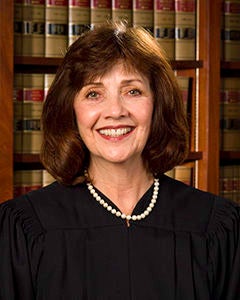News Release
Committee Issues Advice on Social Media Comments by Appellate Court Staff
A state Supreme Court committee issued oral advice providing guidance about what an appellate court justice should do when a staff member posts a comment to social media that violates the ethical canons.
In a summary of the advice posted on the committee's website, the Supreme Court Committee on Judicial Ethics Opinions (CJEO) concludes the justice should take immediate steps to remedy the staff person’s ethical violation after becoming aware of the comment.
In CJEO Oral Advice Summary 2020-37, the committee notes appellate justices are required to exercise reasonable direction and control over the conduct of their staff to prevent them from making public comments that violate the canons.
Once a justice becomes aware that a staff member has posted a social media comment that violates the canons, the justice must, at a minimum, instruct the staff member to delete or remove from public view any improper comment that violates the canons, and then follow up with the staff member to ensure that they have done so. The justice may also need to instruct the staff member to correct or repudiate the comment on social media, particularly if the comment is demeaning or offensive, or otherwise undermines the dignity of the court.
 Justice Judith Haller
Justice Judith Haller
“The committee issued this advice to emphasize the role that justices are required to play when they become aware that their staff have posted comments on social media that violate the ethical canons, to take reasonable steps to remedy the ethical violation,” said Justice Judith Haller, a member of the committee.
The committee concludes appropriate training will help appellate court staff understand the vital role they play in maintaining public confidence in the integrity of the judicial system, as well as the importance of maintaining confidentiality and impartiality and upholding the dignity of the court in their social media postings.
About the Committee on Judicial Ethics Opinions (CJEO)The Committee on Judicial Ethics Opinions is a 12-member advisory committee that includes appellate justices, trial court judges and commissioners. The committee is appointed and authorized by the California Supreme Court, but its work is independent of the court, the Judicial Council, and all other entities. Its opinions are advisory and do not necessarily reflect the views of the California Supreme Court or any other entity.
The committee issues formal opinions, informal opinions, and oral advice on proper judicial conduct pursuant to the California Code of Judicial Ethics and other authorities. CJEO summarizes its oral advice and posts the summaries on the CJEO website for the benefit of the bench and the public.